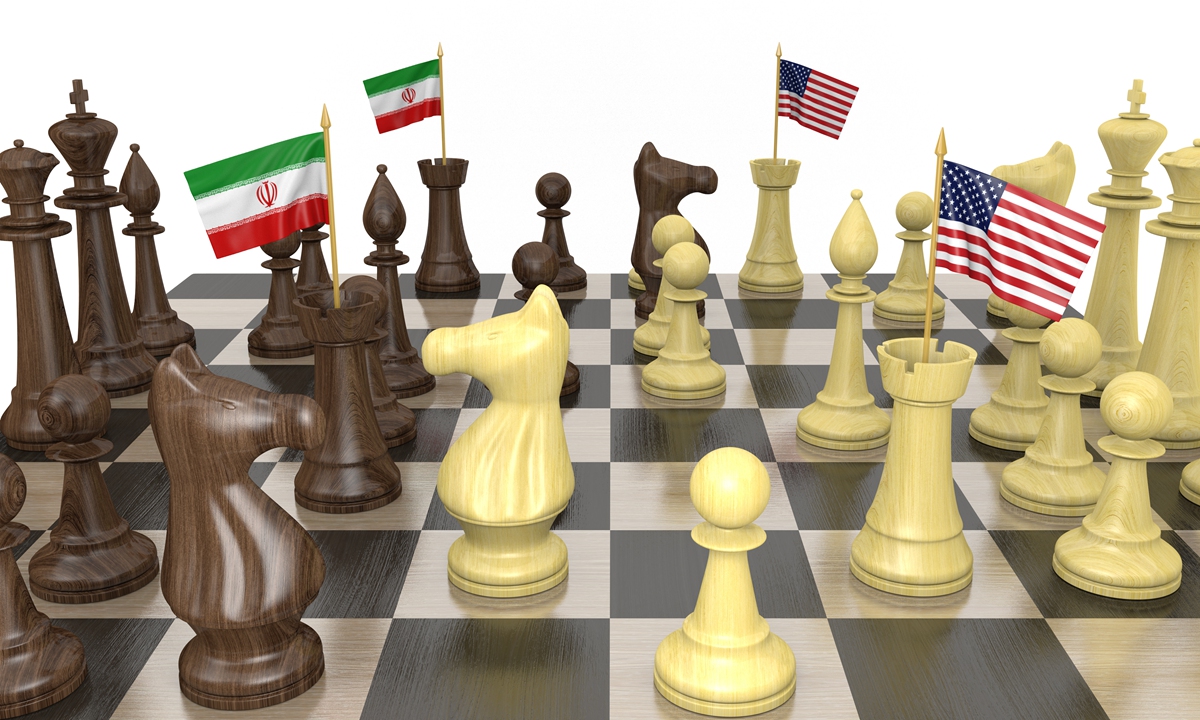
Photo:IC
Iran and the US agreed to hold the second round of negotiations on April 19 after the two sides concluded their "indirect" talks on Saturday in the Omani capital of Muscat in a "constructive" atmosphere, according to the Iranian Foreign Ministry.
Although the talks mark a positive signal, experts doubt any substantial result will be achieved in short term due to deep political distrust between Washington and Teheran.
The two-and-a-half-hour talks between Iranian Foreign Minister Seyed Abbas Araghchi and US Special Envoy to the Middle East Steve Witkoff centered on Tehran's nuclear issue and sanctions relief, said the ministry in a statement, the Xinhua News Agency reported.
The statement added that the two sides agreed to continue the talks on April 19, noting that when leaving the negotiations venue, the heads of the two countries' delegations spoke for a few minutes in the presence of the Omani foreign minister.
In an address to reporters in Muscat following the talks, Araghchi said the first round of the talks was "constructive and held in a calm and very respectful atmosphere."
The two sides had decided to enter a general framework needed for an agreement in the next round, Araghchi said, noting that both sides favored an agreement that would be reached as soon as possible.
He added that in the next round of the talks, "we will try to enter the negotiations' agenda, which will of course have a timetable alongside it," expressing hope that in the upcoming negotiations, the two sides would be able to finalize a basis for starting "real talks."
The talk marked the highest-level meeting between the two countries since 2018, when US President Donald Trump pulled the US out of a previous nuclear agreement between Iran and world powers, BBC reported.
The meeting itself is a very positive signal, as it reveals that the US and Iran have reached some initial consensus on shared goals, which is the hope of facilitating the resolution of the Iranian nuclear issue and breaking through the current impasse, Wang Jin, an associate professor of the Institute of Middle Eastern Studies at Northwest University in Xi'an, told the Global Times.
However, Wang noted that many obstacles still remain, including a lack of mutual political trust and strong opposition to dialogue within both countries. Moreover, the stances of the two sides differ greatly, and both believe that the other side should be responsible for the impasse of the Iranian nuclear issue.
In addition, the current communication channels are still too limited. At present, it is only through the mediation of a third party, Wang said, implying that it may not be possible to achieve significant breakthroughs through just one or two rounds of dialogue in the short term.
Trump on Wednesday threatened that military action remains on the table if Iran fails to agree to end its nuclear program, suggesting Israel will play a key role in any potential response.
"If it requires military, we're going to have military," Trump told reporters from the Oval Office. "Israel will obviously be very much involved in that," he said on Fox News.
After the US and Iran have announced talks over the nature of Iran's nuclear program, Lin Jian, spokesperson from China's Ministry of Foreign Affairs, said on April 8, 2025 that China all along believes that the only right choice for settling the issue is through political and diplomatic means.
Against the current backdrop, it's all the more important for parties to the Iranian nuclear issue to work in the same direction, strengthen dialogue and engagement, and avoid any escalation. As the country which unilaterally withdrew from the Joint Comprehensive Plan of Action and caused the current situation, the US needs to show political sincerity, act in the spirit of mutual respect, engage in dialogue and consultation, and stop the threat of force and maximum pressure, said Lin.


